In his latest column, John Allen Jr. points to a curious incident we noted earlier this week:
... for Israelis suspicious of a pro-Palestinian bias in the Vatican, a photograph out of Benedict XVI's General Audience on Wednesday probably won't help. At the end of the audience, the pope stopped to chat briefly with a group of young Palestinian Christians from Bethlehem, representing a parish the pope plans to visit. One young woman put a keffiyeh, the classic Palestinian headdress, around the pope's shoulders. Fairly quickly, the pope's private secretary, Msgr. Georg Gänswein, removed it -- but the keffiyeh was on Benedict long enough for a photographer to get the shot. One imagines it will make the rounds.
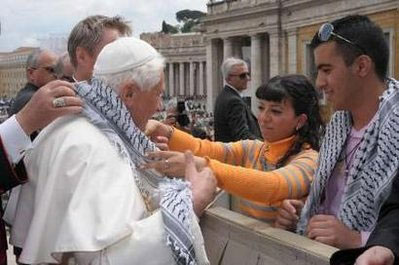
The keffiyeh is a traditional headdress for Arab men, "made of a square of cloth (“scarf”), usually cotton, folded and wrapped in various styles around the head" (Wikipedia); however, since at least the 1930's, it has become a trademark for Palestinian nationalism -- initially as a symbol of insurrection against the British and later popularized by PLO Chairman Yasser Arafat. Since then it has been appropriated -- consciously in some cases, ignorantly in others -- by Westerners.
Chronicling its transition from political to fashion statement, see Kibum Kim's Where Some See Fashion, Others See Politics New York Times February 11, 2007.
Understandably, when donned by the Pope of the Roman Catholic Church at the invitation of two Palestinian Christians, it was going to provoke a reaction.
Personally, I think this amounts to the public relations equivalent of John Paul II's infamous "kissing of the Koran" -- a case where the Pope accepts a gift and follows protocol suitable for the time, but in turn is taken entirely out of context.
In the case of John Paul II, upon receiving a delegation of Muslims he was presented with a gift of the Muslim Koran, which he kissed as a sign of respect (this is traditional practice in the Middle East). Images, however, can speak louder than words, and the photograph of John Paul II is quite compelling. As expected, his actions were imbued with greater meaning than they actually possess: many Catholic 'traditionalists' and anti-Catholic apologists found John Paul II's "bowing before the false god of Allah" good fodder for their screeds.
In like manner, Benedict's donning the kafiyeh, if even for a few seconds, may provoke a similar reaction -- not a few sympathizers to the Palestinian cause will relish the image as a sign of papal solidarity with their cause; conservative critics will beg to differ.
Some of the latter, I think, tend to go a bit overboard -- writing for Atlas Shrugs, Pamela Geller fulminates:
The keffiyeh was Yaser Arafat's swastika and became a powerful symbol of jihad. In the ensuing years, the keffiyeh as an icon of anti-Americanism, anti-semitism and anti-westernism took on a life of its own ...
Just because the Pope pretends not to recognize the uniform does not mean it is not a uniform. The keffiyeh was the signature of Yaser Arafat and is the signature of Hamas and Hezbollah and the homicide bomber. Pretending it's just a scarf is like pretending the klan's white robe is a toga. Symbols mean something. Attempting to mainstream it, in effect softening its barbaric message, is an affront to every victim of Islamic jihad and the war we are engaged in.
The bigoted anti-Catholic remarks issuing from Gellar's readers speak volumes ("Once a Nazi, always a Nazi"?!?) -- thanks to
fellow Catholic Friend of Israel reader Carlos Echevarria for attempting to inject a little reason and sanity into the discussion.
 The Israel Ministry of Foreign Affairs updates us on the meeting of the Bilateral Permanent Working Commission between the State of Israel and the Holy See held at the MFA in Jerusalem:
The Israel Ministry of Foreign Affairs updates us on the meeting of the Bilateral Permanent Working Commission between the State of Israel and the Holy See held at the MFA in Jerusalem: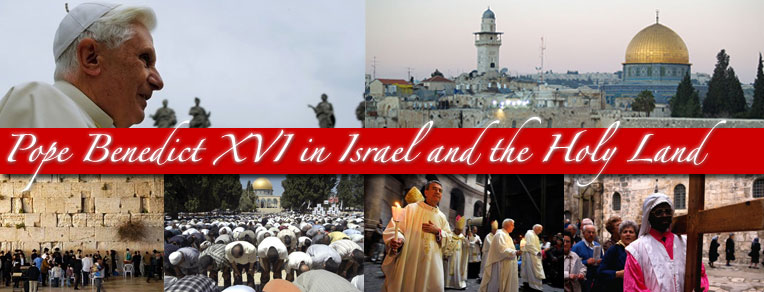
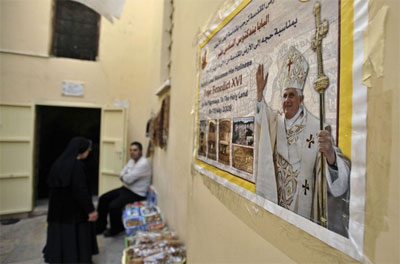
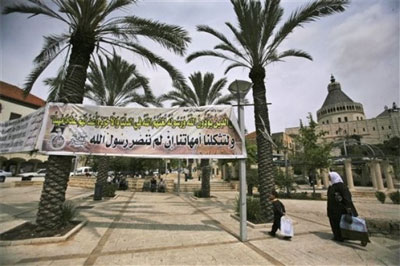
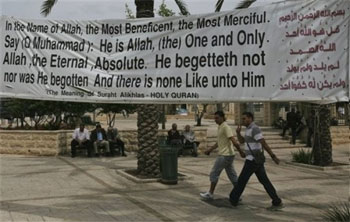
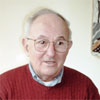 In an interview for a major European periodical next week,
In an interview for a major European periodical next week, 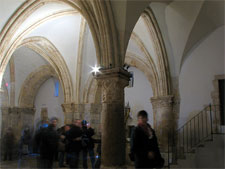 According to the plan, Israel would hand over to the Holy See the use of the
According to the plan, Israel would hand over to the Holy See the use of the 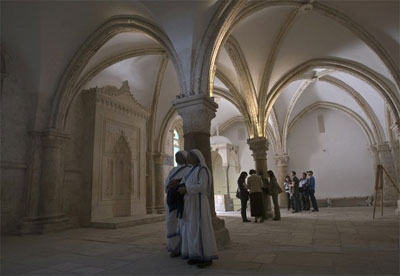
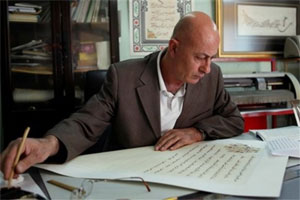
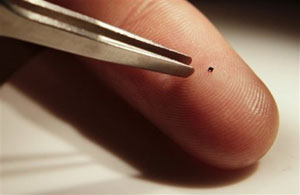
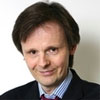 Never one to mince words,
Never one to mince words, 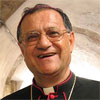 According to YNet News,
According to YNet News,  On a similar note,
On a similar note, 
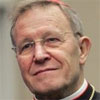 Speaking to the German Catholic Press Agency last week,
Speaking to the German Catholic Press Agency last week, 
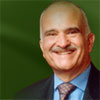

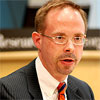
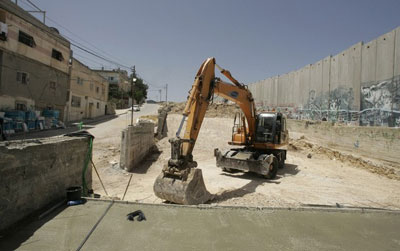
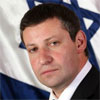 Politics, politics, politics.
Politics, politics, politics. 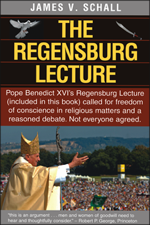
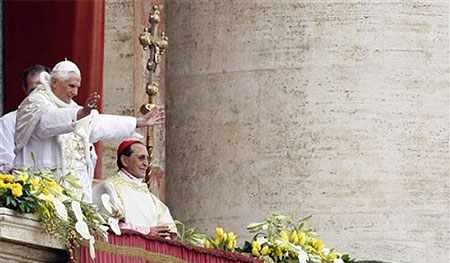
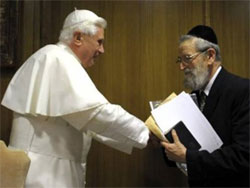 Rabbi Cohen said the Pope went out of his way to make it clear the Vatican would never question Israel’s sovereignty, nor challenge its rights to rule over the Old City of Jerusalem. Between 1949 and 1967, the Old City remained under Jordan’s Islamic rule, and Jews were barred from entering it.
Rabbi Cohen said the Pope went out of his way to make it clear the Vatican would never question Israel’s sovereignty, nor challenge its rights to rule over the Old City of Jerusalem. Between 1949 and 1967, the Old City remained under Jordan’s Islamic rule, and Jews were barred from entering it.








